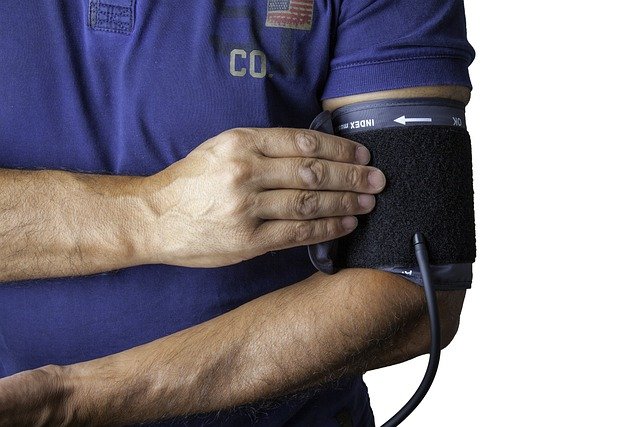What Surprising Benefits Can A 24/7 Nurse Provide for Families in Need?
When families face complex health challenges, the thought of having professional nursing care available around the clock can feel like an impossible luxury. However, 24/7 nursing services offer far more than basic medical supervision. These comprehensive care solutions provide peace of mind, advanced health monitoring, and unexpected advantages that extend well beyond traditional healthcare delivery. From continuous health tracking via wearable devices to sophisticated monitoring systems, modern nursing care has evolved to meet the diverse needs of families navigating health uncertainties.

How Does Continuous Health Tracking Via Wearable Devices Transform Care?
The integration of wearable technology with 24/7 nursing care represents a revolutionary approach to health management. Modern nurses now utilize smartwatches, fitness trackers, and specialized medical devices that continuously monitor heart rate, blood oxygen levels, sleep patterns, and activity levels. These devices provide real-time data that enables nurses to identify subtle changes in a patient’s condition before they become serious complications.
Wearable devices excel at detecting irregular heart rhythms, sudden drops in oxygen saturation, and changes in mobility patterns that might indicate falls or decreased function. For elderly patients or those with chronic conditions, this technology creates an invisible safety net that operates silently in the background. Nurses can analyze trends over days or weeks, providing valuable insights to physicians and helping families understand their loved one’s health trajectory.
The psychological benefits for families are equally significant. Knowing that professional monitoring continues even during sleep hours or when family members cannot be present reduces anxiety and allows caregivers to maintain their own health and responsibilities.
What Advantages Does Virtual Vital Signs Monitoring Offer?
Virtual vital signs monitoring extends nursing care beyond physical presence, utilizing remote monitoring equipment that transmits data directly to healthcare professionals. This technology includes digital blood pressure cuffs, pulse oximeters, digital thermometers, and weight scales that automatically sync with nursing stations or mobile devices.
This approach proves particularly valuable for patients with conditions requiring frequent monitoring, such as heart failure, diabetes, or respiratory disorders. Instead of requiring multiple clinic visits or hospital stays, patients receive consistent professional oversight from the comfort of their homes. Nurses can track medication effectiveness, dietary impacts, and treatment compliance through objective data rather than relying solely on patient reports.
The convenience factor cannot be overstated. Families save countless hours that would otherwise be spent traveling to medical appointments, waiting in clinics, and coordinating complex schedules. Virtual monitoring also reduces exposure to healthcare-associated infections, particularly important for immunocompromised patients or during illness outbreaks.
How Do Real-Time Alerts for Health Emergencies Save Lives?
Perhaps the most critical advantage of 24/7 nursing services lies in their ability to detect and respond to health emergencies as they develop. Advanced monitoring systems can identify dangerous changes in vital signs, medication reactions, or sudden deterioration in patient condition within minutes rather than hours.
Real-time alerts operate through sophisticated algorithms that recognize patterns indicating potential emergencies. When a patient’s heart rate exceeds safe parameters, blood pressure drops dangerously, or breathing patterns become irregular, immediate notifications reach nursing professionals who can assess the situation and coordinate appropriate responses.
These systems prove invaluable for patients with conditions prone to sudden changes, including cardiac patients, those with seizure disorders, or individuals recovering from surgery. The rapid response capability often means the difference between a manageable medical event and a life-threatening emergency requiring hospitalization.
What Unexpected Social and Emotional Benefits Emerge?
Beyond medical advantages, 24/7 nursing care provides substantial emotional and social benefits that families often discover unexpectedly. Professional nurses serve as knowledgeable advocates who can communicate effectively with physicians, insurance companies, and other healthcare providers, reducing the burden on family members who may feel overwhelmed by medical terminology and complex care requirements.
Nurses also provide emotional support and education that empowers families to participate confidently in care decisions. They teach family members to recognize warning signs, understand medication purposes, and implement safety measures that prevent accidents or complications.
The presence of professional care also allows family relationships to remain focused on love and companionship rather than becoming strained by caregiving responsibilities. Adult children can visit as family members rather than serve as primary caregivers, preserving important emotional connections.
How Do Costs Compare Across Different 24/7 Nursing Providers?
Understanding the financial investment required for 24/7 nursing care helps families make informed decisions about their healthcare options. Costs vary significantly based on location, level of care required, and specific services included.
| Service Level | Provider Type | Estimated Daily Cost | Key Features |
|---|---|---|---|
| Basic Monitoring | Home Health Agencies | $200-400 | Vital signs, medication management, basic care |
| Advanced Care | Private Duty Nursing | $400-800 | Specialized equipment, complex medical needs |
| Technology-Enhanced | Digital Health Companies | $150-300 | Wearable monitoring, virtual consultations |
| Comprehensive Care | Medical Concierge Services | $600-1200 | 24/7 availability, equipment included, physician access |
Prices, rates, or cost estimates mentioned in this article are based on the latest available information but may change over time. Independent research is advised before making financial decisions.
Many insurance plans, including Medicare and Medicaid, may cover portions of 24/7 nursing care when medically necessary. Long-term care insurance policies increasingly recognize the value of home-based nursing services and may provide substantial coverage for qualified patients.
Conclusion
The surprising benefits of 24/7 nursing care extend far beyond basic medical supervision, encompassing advanced technology integration, emergency prevention, and comprehensive family support. Through continuous health tracking, virtual monitoring, and real-time emergency response capabilities, these services provide security and peace of mind that transforms the healthcare experience for families facing complex medical challenges. As technology continues advancing and costs become more accessible, 24/7 nursing care represents an increasingly viable option for families seeking comprehensive, compassionate healthcare solutions.
This article is for informational purposes only and should not be considered medical advice. Please consult a qualified healthcare professional for personalized guidance and treatment.




